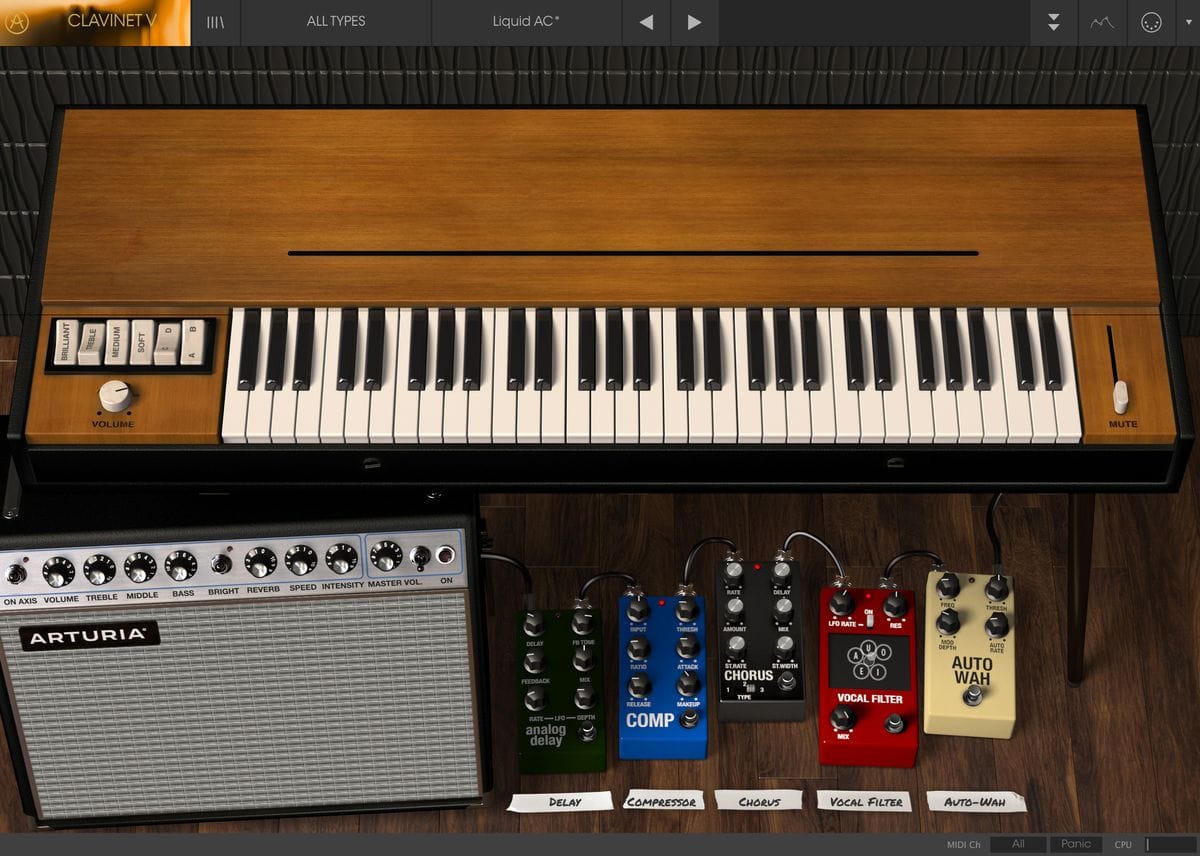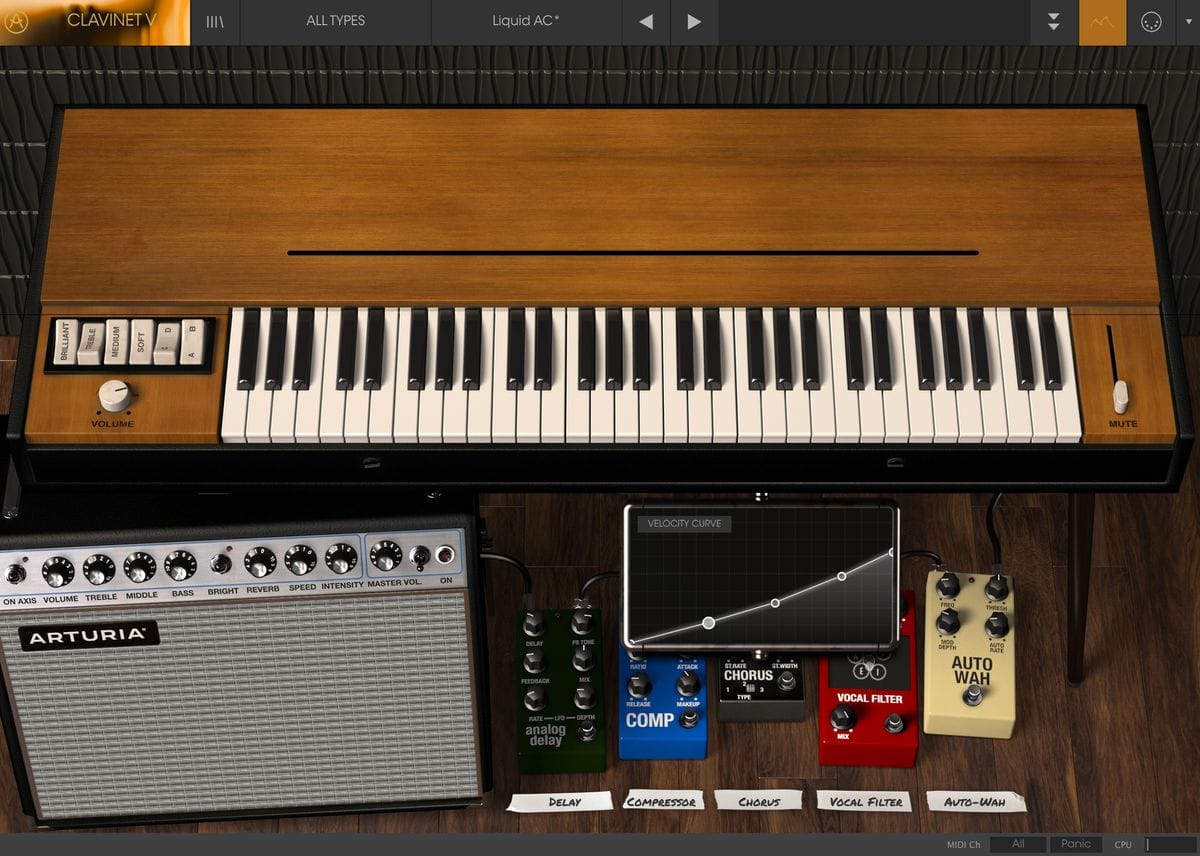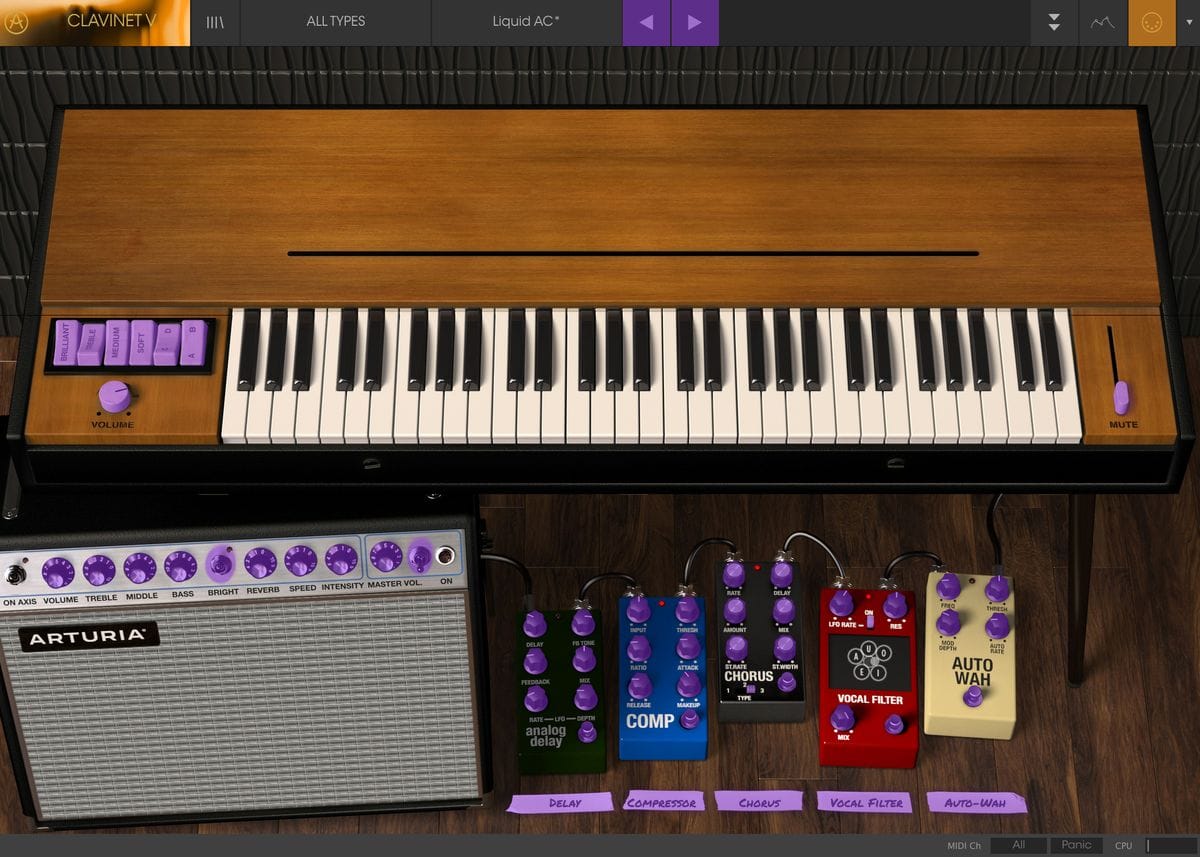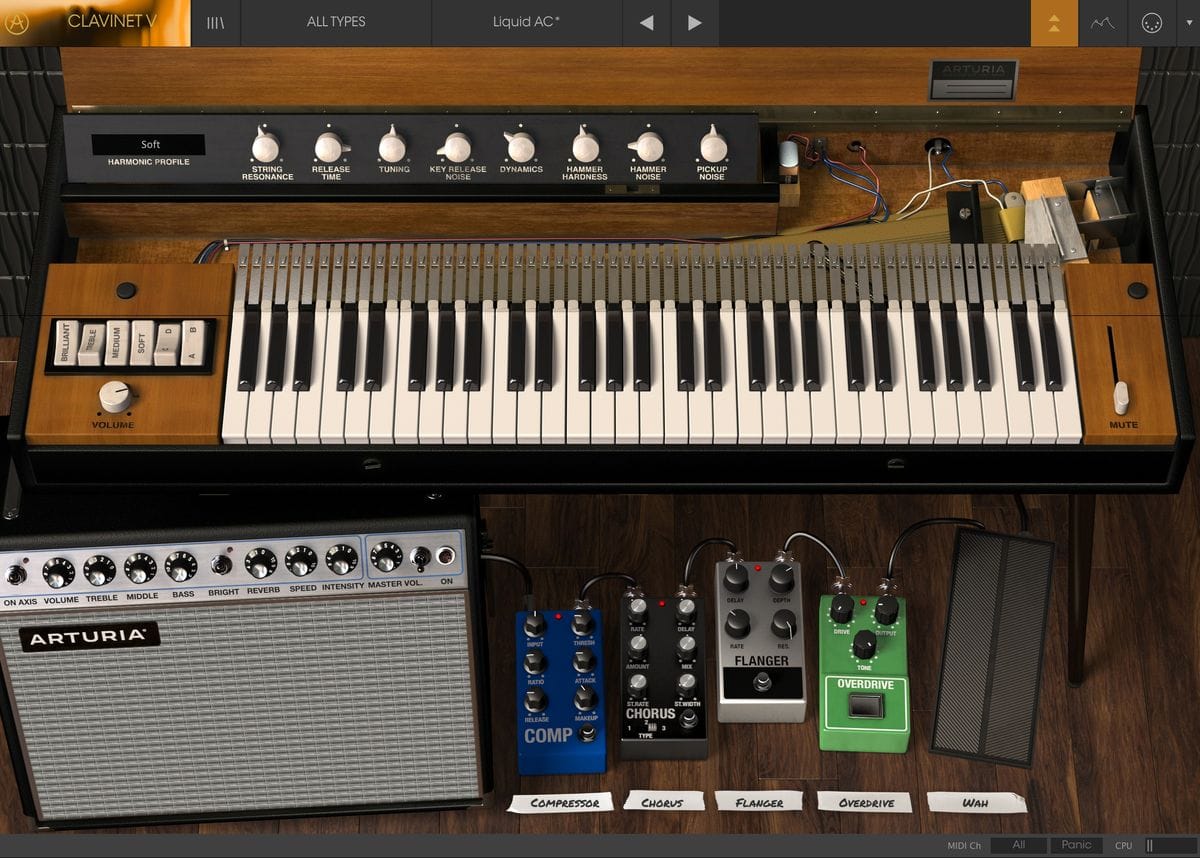That’s where
Clavinet V is different
Almost every keyboard has a handful of Clav patches. Almost none get it right.
Our physical modeling technology creates a detailed audio hologram of the Clavinet. Instead of a sampled snapshot of a sound, you get a spot-on virtual Clav that lives and breathes. It barks and sparkles just like the real deal and will draw out musical ideas you didn’t know you had.
Even the golden ears in your audience will think you used the real thing.
All of the Vibe
Tweak the same controls as on the original and Clavinet V faithfully renders the results. No settling for one-size-fits all patches here!
None of the Hassle
Vintage Clavs are hunted to extinction on the used market and expensive to restore. Clavinet V will never need tuning or repairs.
Funkmaster
Soul, rock, R&B, hip-hop, dance, prog … nothing adds groove and cred to your productions like a Clav.
Radio Ready
Play straight or through built-in modeled FX from back in the day. It’s never been easier to drop a Clav sound perfectly into a live or recorded mix.
How does it work?
You can strum or pick a guitar, but you can also mash one finger onto the fretboard and the string will vibrate.
This was the core of the “hammer-on” technique Eddie Van Halen made famous. Make a keyboard do that, give it a string for every note, add pickups like a guitar, and you have a Clav.
The Clavinet had humble beginnings. German company Hohner — known for harmonicas and accordions — aimed a series of electrified keyboards at classical practice and recital. Designer Ernst Zacharias had tried other techniques and materials, beginning with the Cembalet in the 1950s. It plucked a reed using a motion like a harpsichord. Next, the Pianet family had foam pads that actually stuck to the reeds. Pressing keys unstuck the pads, making the reeds vibrate.
Discover the history of Clavinet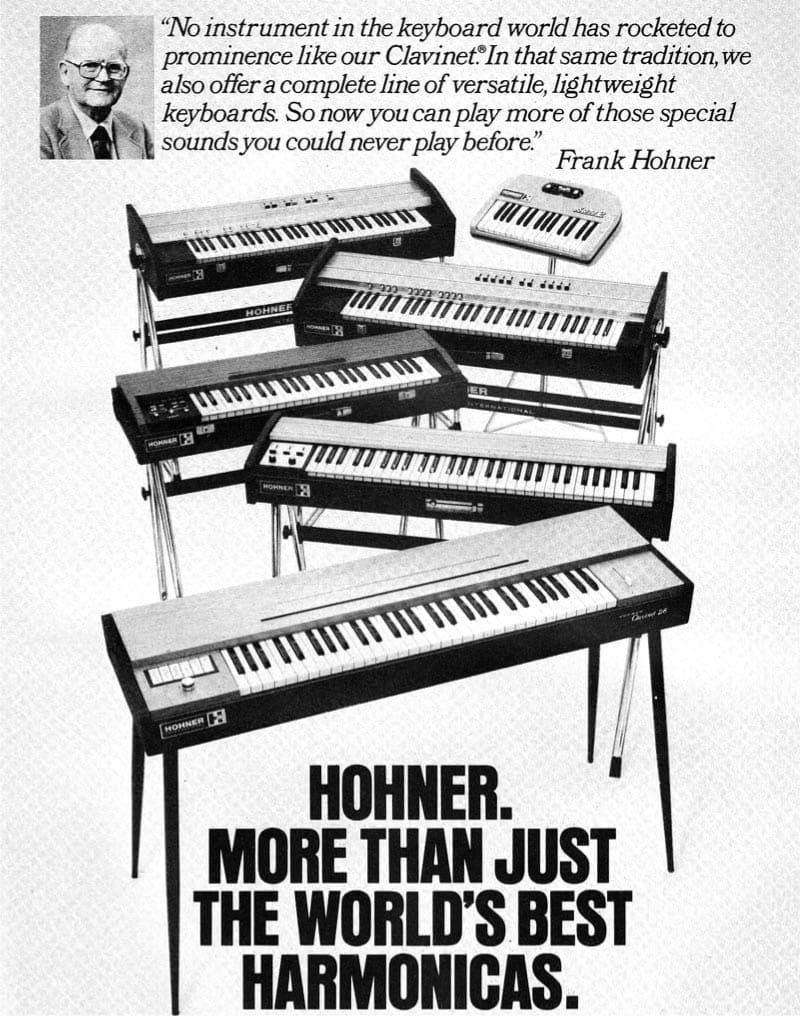
A real Clav,
piece by piece
Meticulous component-level modeling is the secret to authentically recreating a legend.
The Clavinet is a unique combination of discrete electro-acoustic components that each have a dynamic life force all their own as they interact with each other. Capturing that behaviour - and subsequently that sound - requires more than sampling. Instead, we’ve modeled each component to bring the signature sound and continuous playing dynamics of the Clavinet fully to life under your fingertips.
Physical modeling
The Clavinet sound comes from its strings contacting metal plates, giving it that characteristic bright sound similar to a slapped guitar or bass string. Releasing the key triggers the yarn damping mechanism. Each of these components has been remodeled to accurately reflect differences in volume and brightness depending on how hard you play - right down to the master damper slide for softer muted plucked sounds.
Algorithmic circuit emulation
The Clavinet’s string vibrations are converted to an electric signal via a pair of 6-core humbucking pickups similar to those found in electric guitars, Left-hand rocker switches determine the pickup engagement and phase, as well as all-or-nothing passing of low, mid, and high frequencies. We emulated these individual parts of the Clavinet’s chain using advanced algorithms to give you the exact response you’d expect from the real thing. Clavinet V is as close as it gets.
So Simple,
So Flexible
All the tonal control of the Clavinet D6.
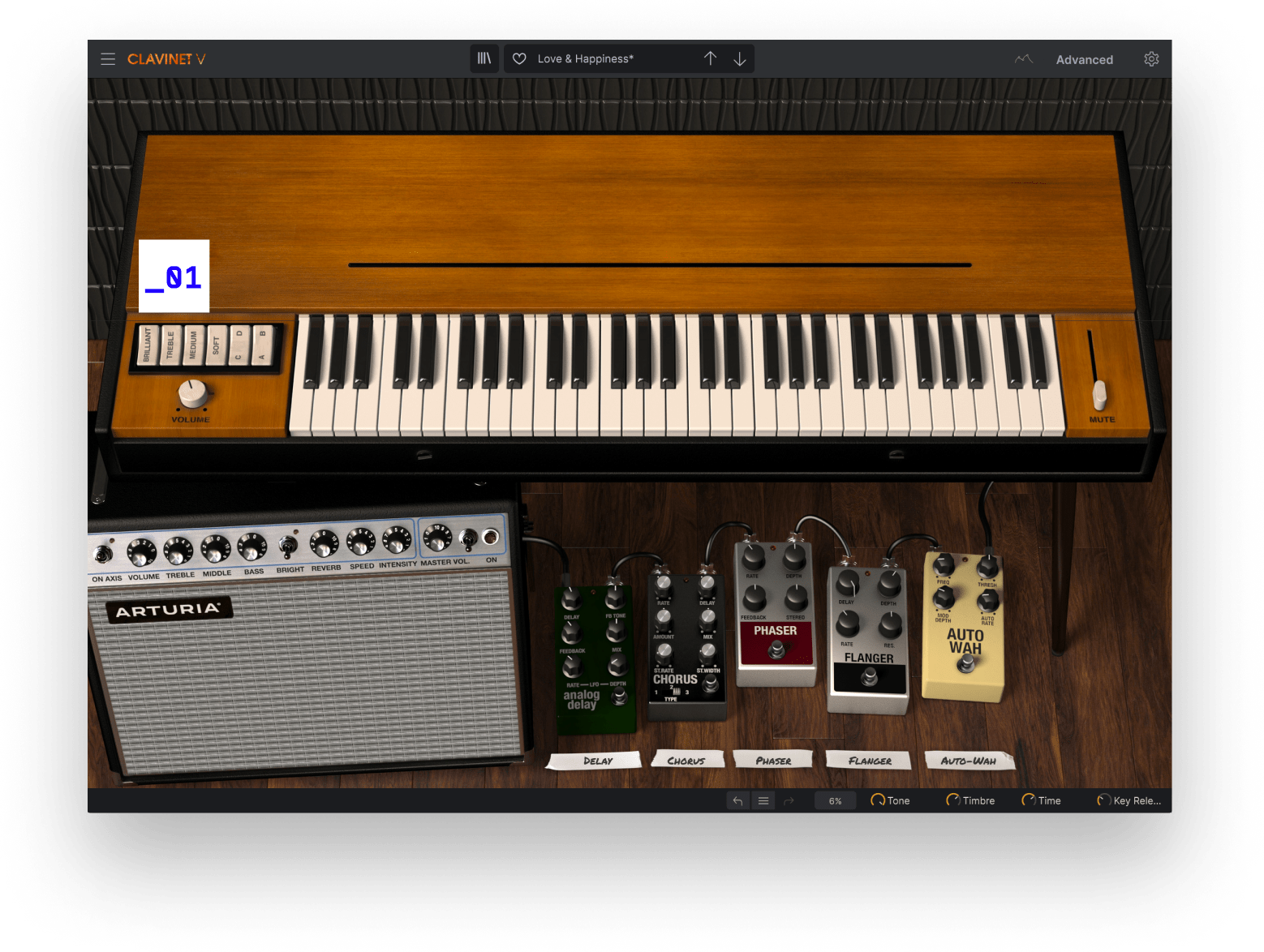
Go full and mellow, sharp and nasal, or anywhere in between. Four filter switches emphasize different parts of Clavinet V’s frequency range.
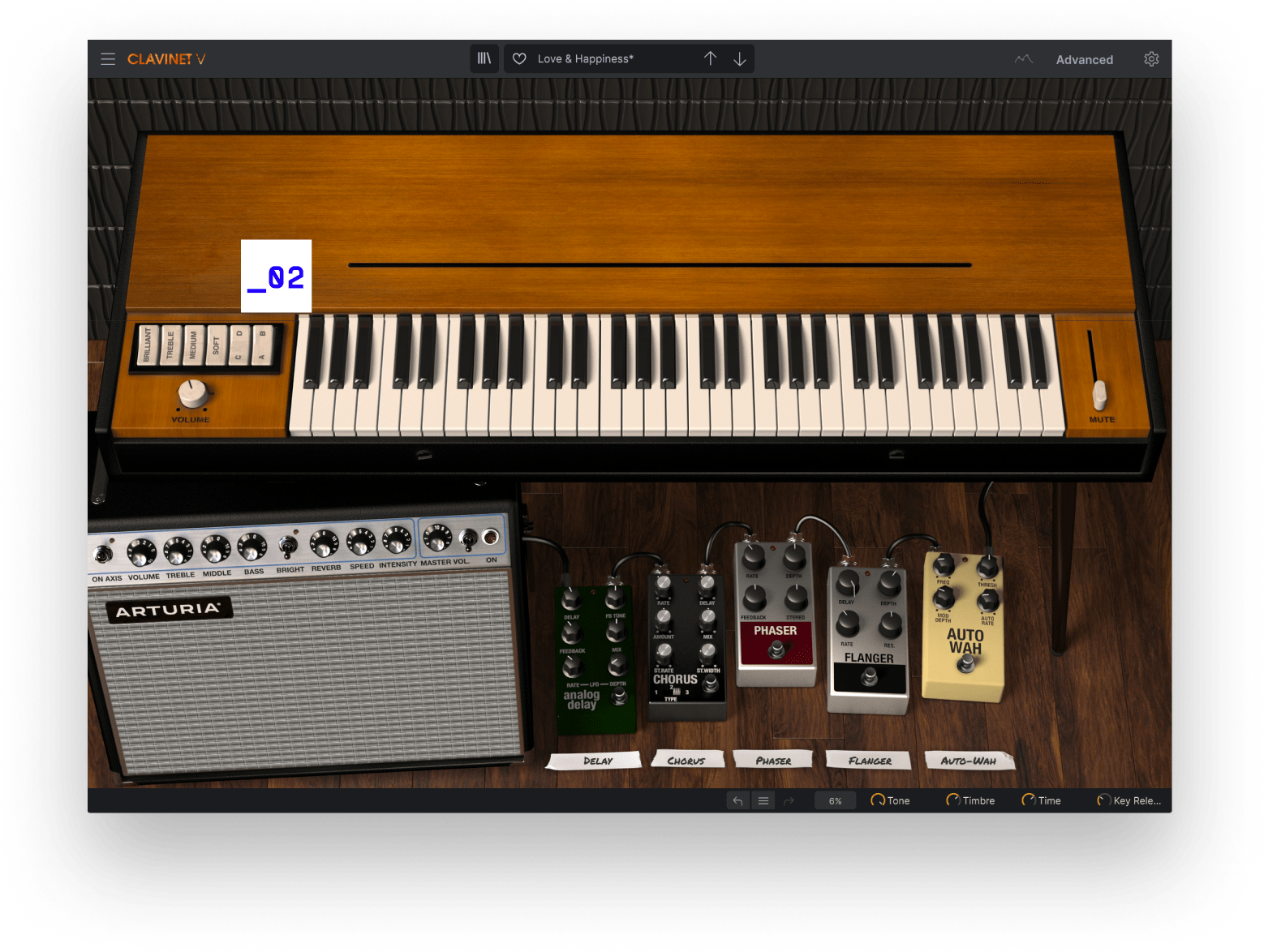
Take even more timbral control with the pickup switches — choose to hear one pickup or the other, both in phase, or both out of phase.
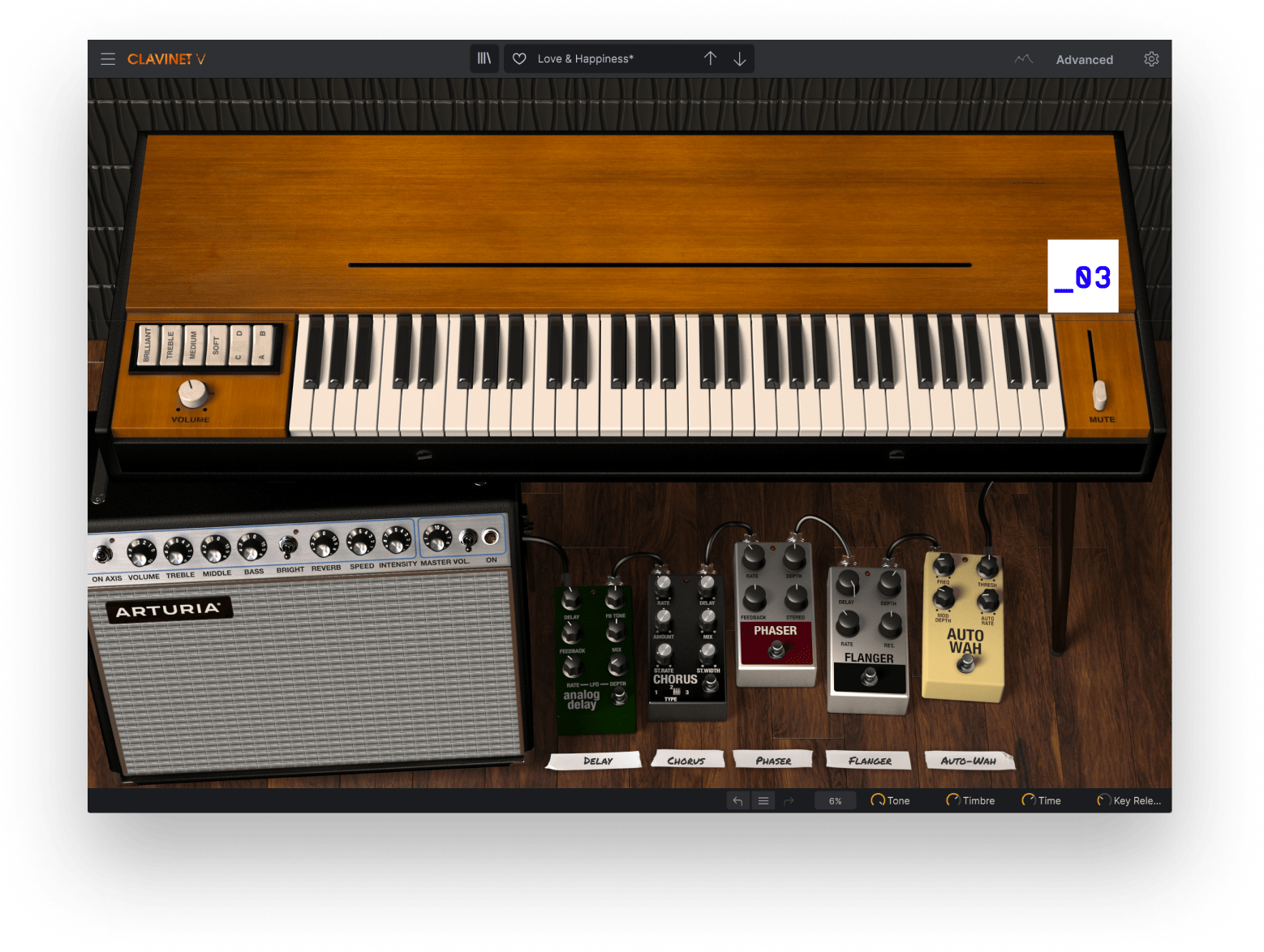
We’ve modeled the Clavinet’s physical mute mechanism, which affects both sustain and brightness.
What we
added
Clavinet V lets you fine-tune all the mechanical and electrical nuances of the real thing - and beyond.
Physical modeling gives you infinitely more control than sampled-based instruments - even more than the real thing. Add effects to the mix, and you’ve got a complete rig at your fingertips.
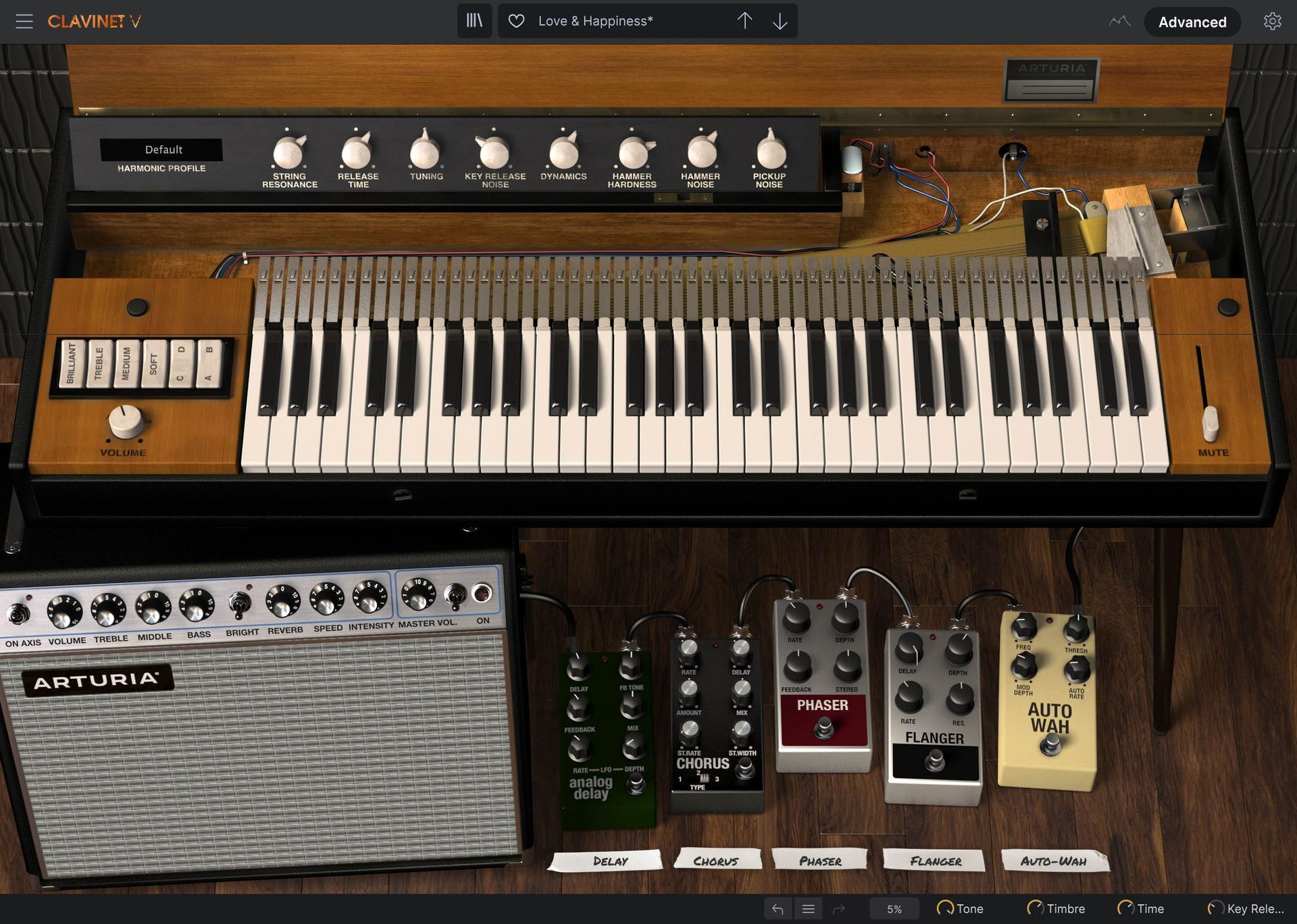
_1
_2
_3
_4
_5
01. Cry, Baby
How can a Clav get any funkier? With a wah-wah! Choose a MIDI-assignable pedal or auto-wah.
02. Turn On, Trip Out
Four more stompbox slots host authentic vintage phaser, flanger, chorus, delay, overdrive, and compressor pedals, and even a unique vocal filter for talkbox effects.
03. Amp It Like the Pros
The modeled Twin-style amp simulator offers 3-band EQ, reverb, tremolo, and plenty of attitude.
04. Profile Picture
Change Clavinet V’s entire character with different harmonic profiles.
05. All the Details
No two Clavinets are exactly alike, which is why you can adjust variables like string resonance, key-off noise, hammer hardness, and more.
06. Define Your Touch
Optimize Clavinet V’s response for your playing style and MIDI controller in the velocity curve editor. It even saves curve presets.
Hear it
in action
Everyone knows and loves the “Superstition” sound, but just like the original, Clavinet V has many more musical and tonal tricks up its sleeve.
Physical modeling and algorithmic emulation combine in the Clavinet V to give you all the variations of authentic Clavinet sounds behind countless funk, pop, R&B and rock hits. Check out these demos to experience its mind-expanding range.
Fast Lane
Paolo Negri
Funky
Christian Laffite
Movie
Christian Laffite
Presets
From fundamental funk to processed prog, our acclaimed sound designers have filled the factory soundbank with Presets that capture any sound the original Clavinet could create — and even a few that it couldn’t.
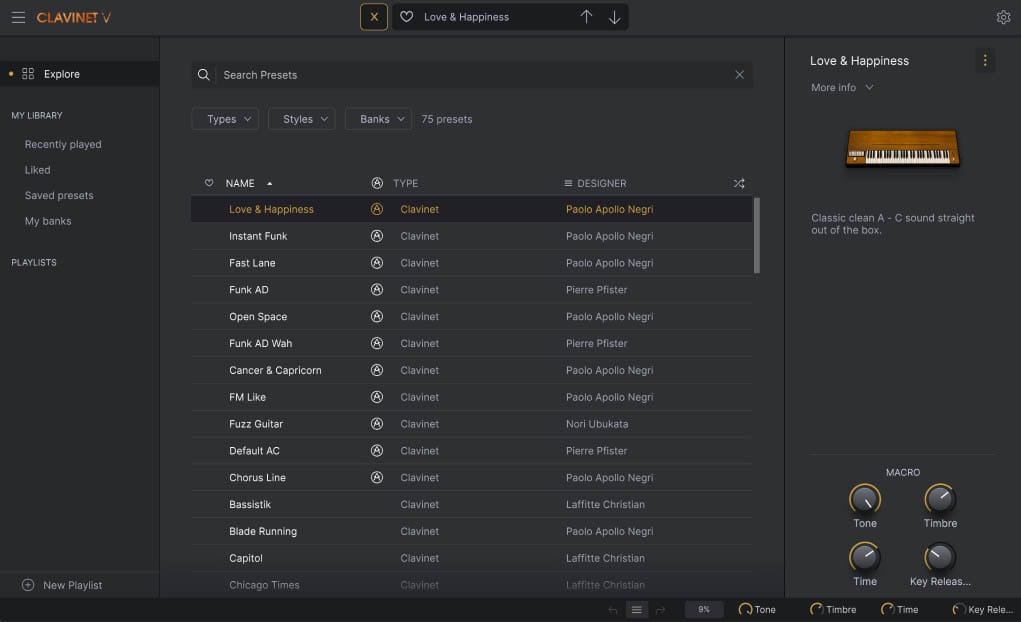
Artistscorner
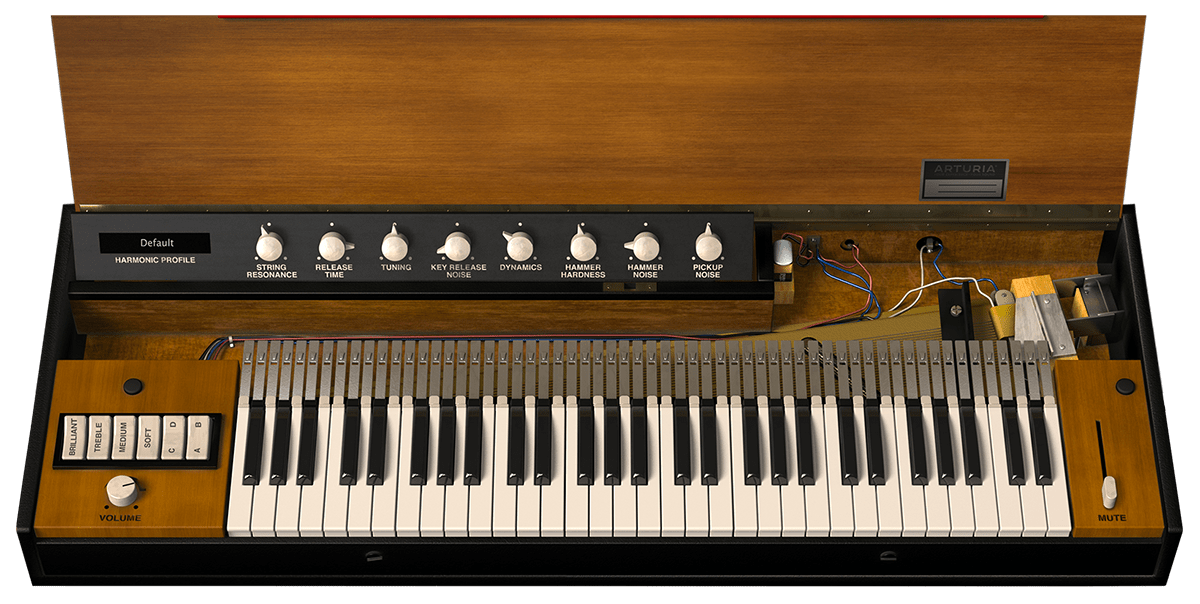
Included in
V collection
Legendary Keyboards Reinvented
This instrument is also part of the V Collection -your complete dream line-up of the legendary synths, organs, pianos and more that made keyboard history. They’re modeled with the most advanced technologies for authentic realism, and enhanced with new creative options. Whether you use it as DAW plugins in the studio or standalone at gigs, V Collection puts the greatest keys of all time at your fingertips for instant inspiration.
Learn More
Toutes les fonctionnalités
dont vous avez besoin

Les tutoriels intégrés détaillent chaque aspect de l’instrument, des différents paramètres aux conseils de nos designers sonores, pour que vous puissiez vous concentrer sur votre créativité. C’est simple comme bonjour !

L’Arturia Software Center vous sert à télécharger, organiser et mettre à jour tous vos logiciels d’Arturia au même endroit, ou encore à gérer toutes vos licences sur plusieurs appareils. Plus c’est simple, mieux c’est.

Nos instruments virtuels et nos plug-ins sont conçus pour s’intégrer facilement à votre installation. Quel que soit votre style, vous pouvez expérimenter tout en profitant d’une parfaite compatibilité avec les principaux DAW, aussi bien sur Windows que sur macOS.

Ne passez pas des heures à chercher le son que vous avez en tête. Le navigateur intelligent vous permet de trier les presets par mots-clés, par type d’instrument, style musical, etc. Vous pouvez même sauvegarder vos sons favoris pour les rappeler instantanément dès que vous en avez besoin.

Vous voulez profiter de nos émulations d’instruments classiques avec une immersion visuelle totale ? Vous préférez économiser un peu d’espace sur votre écran ? Les interfaces de tous les instruments virtuels d’Arturia peuvent être redimensionnées à la taille qui vous convient.

Les paramètres des instruments sont directement assignés aux commandes des claviers de la gamme KeyLab d’Arturia, mais ils fonctionnent aussi très bien avec d’autres contrôleurs MIDI. Vous bénéficiez ainsi de macros pour modifier instantanément le son, d’une intégration facile avec le DAW et d’un fonctionnement indépendant.
Phi® Powered
State-of-the-art physical modeling designed to provide real material depth to our acoustic and electro-acoustic virtual instruments.
With advanced mathematical algorithms, our engineers recreate every aspect of the original instruments, down to the finest vibrations - for a response that sounds and feels as tangible as the real thing.
Learn more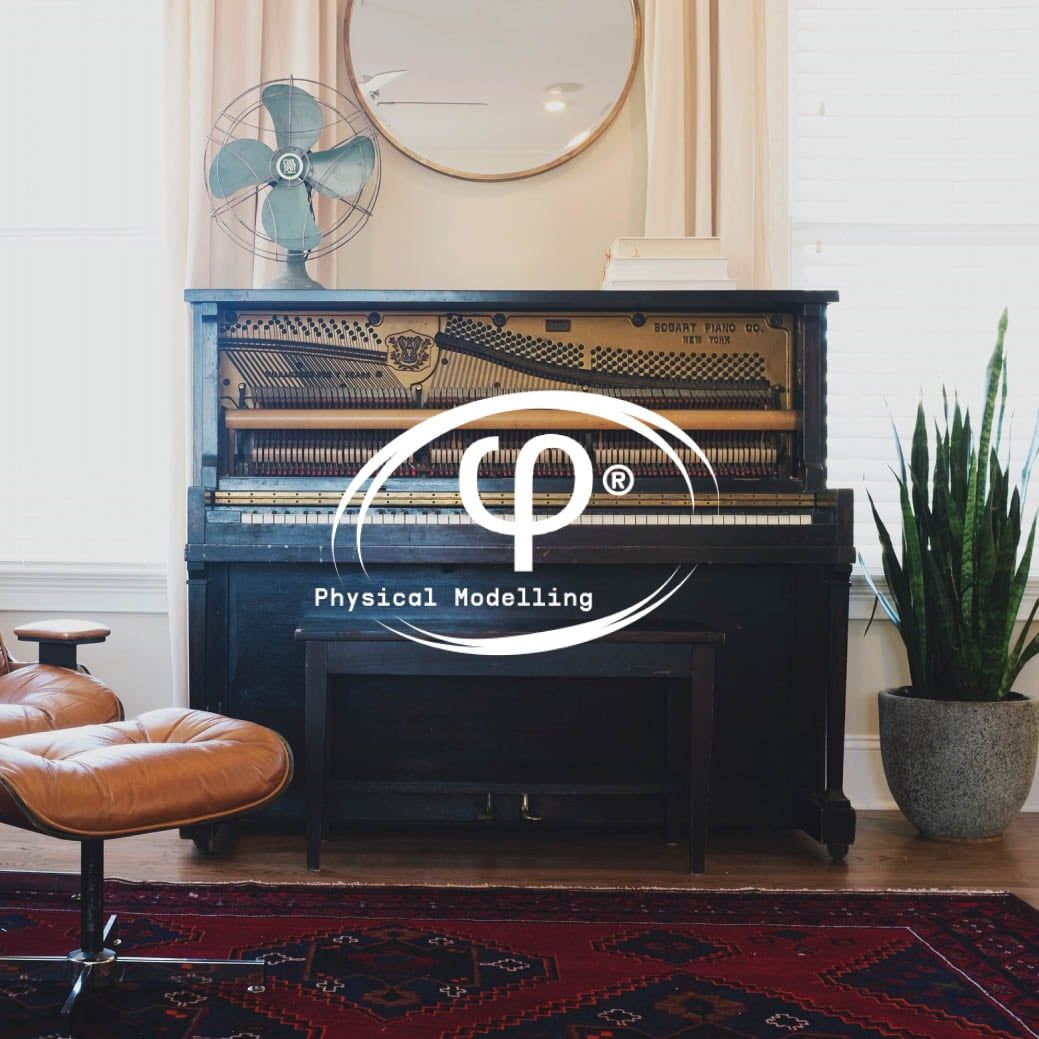
Gallery
Main Features
Advanced Physical modeling engine (no static samples)
Hohner™ Clavinet
- Mute bar
- Accurate pickups model with generated pickup noise (4 lower and upper pickup combinations)
- Circuit Modeled tone circuit (4 bands, brillant, trebble, medium, soft)
- Volume control
Fender Twin amp
- Modeled spring reverb
- On and off axis mic placement
- Tone controls
- Mono vibrato
- Effects are post output circuit
Output effects where you can change the order
- Wah, auto-wah
- Flanger
- Phaser
- Compressor
- Chorus
- Analog Delay
- Overdrive
- Vocal Filter
Advanced mode for editing the model itself
- Harmonic profile selections
- Velocity curve editor
- String resonance
- Release time
- Tuning
- Key release noise
- Dynamics
- Hammer hardness
- Hammer noise
- Pickup noise
74 factory presets
Easy to use MIDI mapping
Platform specifications
Windows
- Win 10+ (64bit)
- 4 GB RAM
- 4 cores CPU, 3.4 GHz (4.0 GHz Turbo-boost)
- 3GB free hard disk space
- OpenGL 2.0 compatible GPU
- ARM processors not supported on Windows
Required configuration
- Works in Standalone, VST, AAX, Audio Unit, NKS (64-bit DAWs only).





Apple
- Mac OS 11+
- 4 GB RAM
- 4 cores CPU, 3.4 GHz (4.0 GHz Turbo-boost) or M1 CPU
- 3GB free hard disk space
- OpenGL 2.0 compatible GPU
Work with ASC
- An elegant and simple solution to help you install, activate, and update your Arturia software instruments.
All manufacturer and product names mentioned on this page are trademarks of their respective owners, which are in no way associated or affiliated with Arturia. The trademarks of other manufacturers are used solely to identify the products of those manufacturers whose features and sound were studied during the development. All names of equipment, inventors, and manufacturers have been included for illustrative and educational purposes only, and do not suggest any affiliation or endorsement by any equipment inventor or manufacturer.
